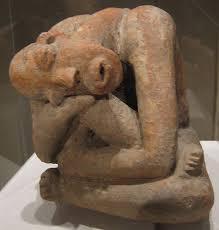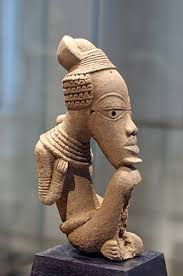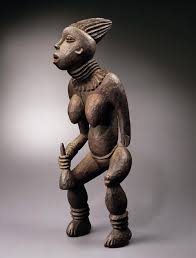Are women now being erased from childbirth?











Are women now being erased from childbirth?
They are a secretive bunch of women who jokingly call themselves The Witches – a group of midwives and birthing professionals holding an increasingly controversial view. It’s one the majority doesn’t dare air in public for fear of losing their job and reputation, or becoming the victim of a social media pile-on.
They believe that only women – that is, adult females – can give birth to babies. And, no, that isn’t a joke. The bitter debate about transgender rights that has raged across Britain’s university campuses has made its way onto the maternity ward.
Milli Hill, best-selling author of The Positive Birth Book and one of the Witches in question, revealed last week that she has been set upon and “cancelled” by an online mob. She was “bullied and silenced”, she says, after an online exchange with a stranger last November over whether unwanted obstetric interventions by doctors was violence against women. Hill, founder of the Positive Birth Movement, a free support service for pregnant women, questioned the use of the term “birthing person” in that context, prompting an online furore in which she was accused of being “vile”, “deliberately hateful” and transphobic. There was a call for her books to be boycotted, and she was dropped by the charity Birthrights, which she has worked with for some years.
“It was really horrible. I was extremely hurt and upset,” she says. “If anyone tried to defend me, they too were bullied and intimidated. The birth world is small, and I have been made an example of – a lesson to others. I don’t know where this witch hunt mentality comes from, but we are in trouble if we cannot have an honest debate.”
Back in February, Brighton and Sussex University Hospitals issued guidelines on “gender-inclusive language”, advising midwives and other professionals to talk of “chestfeeding” rather than breastfeeding, and the “birthing parent” rather than mother, when dealing with trans and non-binary parents.
“We are forbidden from mentioning the words ‘she’, ‘her’, ‘female’ and ‘woman/women/girl’ in our NHS Trust’s pregnancy testing policy. It has been erased that only the female sex is capable of pregnancy. Madness,” one professional posted last week.
“It was really horrible. I was extremely hurt and upset,” she says. “If anyone tried to defend me, they too were bullied and intimidated. The birth world is small, and I have been made an example of – a lesson to others. I don’t know where this witch hunt mentality comes from, but we are in trouble if we cannot have an honest debate.”
Back in February, Brighton and Sussex University Hospitals issued guidelines on “gender-inclusive language”, advising midwives and other professionals to talk of “chestfeeding” rather than breastfeeding, and the “birthing parent” rather than mother, when dealing with trans and non-binary parents.
“We are forbidden from mentioning the words ‘she’, ‘her’, ‘female’ and ‘woman/women/girl’ in our NHS Trust’s pregnancy testing policy. It has been erased that only the female sex is capable of pregnancy. Madness,” one professional posted last week.
A midwife working in a rural area of north England says the “inclusive” trans and non-binary ideology has “exploded”, particularly among young midwives. “We are going backwards in terms of recognising women’s needs and women’s space,” she says. “Some of my colleagues seem to be have been brainwashed, and now we are all forced to go along with this polite fiction. Last week, I got an invitation to a smear test that described me as a ‘person with a cervix’.”
Earlier this year, the High Court upheld a ruling that Freddy McConnell, a trans man who has given birth to a baby boy, could not be described on the birth certificate as his son’s father or parent, as English common law required him to be described as the child’s mother.
Despite that, for the midwives and doulas who support pregnant women, simply saying out loud that it is women and mothers who give birth is now tantamount to lighting a blue touch paper – and watching your career go up in smoke.
“A couple of years ago, I started to notice other writers adding disclaimers to their books, saying ‘I acknowledge not everyone who gives birth is a woman’, and at conferences, speakers talking about ‘women and birthing people’. Since then, it’s definitely gathered momentum,” says Hill.
“When I wrote on my blog that sex is binary, I was told I should respect other people’s beliefs. Well, this is not religion. It’s not about beliefs, especially if you are a midwife.”
Last week, when Hill, a mother-of-three, revealed that she had been dropped by Birthrights (in an email from its chief executive, saying the charity “isn’t able to work with people who don’t share our inclusive values”), her inbox began to overflow with messages of support. Birthrights, by contrast, shut down its social media as it was inundated with complaints.
JK Rowling, the author of the Harry Potter novels who was attacked by trans activists last year after she took issue with women being referred to as “people who menstruate” (“I’m sure there used to be a word for those people. Someone help me out. Wumben? Wimpud? Woomud?”) she tweeted: “Solidarity to the brave and fabulous @millihill.”
“People from all over the world are saying ‘Thank you, thank you’ – people who feel they can’t talk about this,” says Hill.
Lynsey McCarthy-Calvert watched the Hill drama unfold with a weary sense of déjà-vu. She was forced to stand down as a spokesperson for Doula UK three years ago, after transgender activists complained about a Facebook post in which she said only women can have babies.
McCarthy-Calvert, a mother-of-four from Benfleet, Essex, says she believed the point of being a doula was to be an advocate for women: “The irony is that most of us are Left-leaning, sympathetic, inclusive women who have spent a lifetime speaking up for the underdog. To cast us as hate figures is bizarre.”
When her story became public, she had to sign a document saying she understood her views were not compatible with NHS values and would not air them in public in order to continue working for the East of England NHS Trust, where she serves as a non-executive member of the maternity board. That work means a lot to her, so she agreed. “I’m still feeling rather stifled by it all,” she says drily.
Why all this matters, over and above the academic and philosophic arguments about what is to be a woman or a man, is that sex difference is key to formulating health and social policy. A nursing and midwifery professor (who asked to remain anonymous) said: “Look at the hospital policies around Covid. If a baby needs care, some hospitals are only allowing one parent to visit each day. An infant needs contact with its mother and we should say explicitly which parent we mean.
“When it comes to breastfeeding, you don’t need parental leave protections; you need maternity leave protections. The bond between mother and infant is crucial. You can’t protect it if you can’t name it.”
McCarthy-Calvert adds that there is also an issue of safety: “The atmosphere is so toxic and divisive it’s got to the point where we can’t state a simple fact – for example, in talking to parents about how to safely share a sleep surface with a baby in case you fall asleep when you are feeding. We should use plain language that says it’s the breastfeeding mother that’s safe [in that situation], not any other parent. Once you obfuscate the language, the meaning isn’t clear. People just don’t understand what you mean when you are talking about the chest-feeding parent.”
None of this means that trans or non-binary people need to declare themselves as women if they don’t want to, they all insist: simply that those people should get tailored care, without sidelining women (organisations tend to say inclusive language is an addition to the norm and that staff should talk about “women and birthing people” – the reality, especially online, where word count matters, is that this gets reduced to “birthing people”).
“That doesn’t mean we shouldn’t be talking about it or training around it or learning what people who are trans or non-binary need in their maternity care. I think that would be great,” says Hill. “It’s important to understand the needs of anyone who needs personalised, individualised care, be someone with English as a second language or a disability or whatever. I’m not trying to erase anyone.
“The problem comes when you get this shift of birthing language – you are saying not all people who give birth are women and are therefore you are demoting women from a sex to an identity.”
Irene Garzon, a midwife who worked at London’s Hillingdon Hospital and taught midwifery at the University of Birmingham, puts it more simply: “If you have ovaries and a uterus and you are pregnant, you are a woman,” she says.
That would have once been a statement of the obvious – but not any more.
Reference:The Telegraph: Margarette Driscol
Older people suffered biggest rise in anxiety during first lockdown










Older people suffered biggest rise in anxiety during first lockdown
Anxiety among older people doubled during the first Covid lockdown, research suggests.
A study of 380,000 people found the pandemic caused the biggest blow to 60 to 80-year-olds' mental health.
People in that age group reported the greatest increase in anxiety and depression, as well as getting less sleep.
Isolation from family and friends and worries about being most at risk from the virus is likely to blame, according to the researchers.
____________________________________________________
Feeling vulnerable? Talk to Samaritans
Samaritans volunteers are responding to 10,000 calls per day
Older people need help to tackle depression (The Guardian)
____________________________________________________
They said there is 'cause for concern' about both younger and older peoples' mental health, but the disproportionate impact on older people has been 'overlooked', so they should be prioritised for support.
But the study also found that the lockdown had a positive impact on some peoples' mental health, with participants experiencing more spare time and a greater sense of community.
Researchers said their study, which was published today in the journal Nature Communications, is the largest of its kind and found 'wide-ranging positive and negative effects' on the UK population's mental health and wellbeing.
The participants, around 90 per cent of whom live in the UK, completed a questionnaire on their mental health in January 2020, followed up by another in May and June 2020.
The number of over-80s who said they experienced anxiety daily and several times a week more than doubled, researchers found.
Around 14 per cent more people over 80 reported feeling depressed during lockdown than they did before it.
Older adults also reported having the highest health concerns compared to other age groups.
Among all the participants, the biggest change was seen in anxiety levels, with the proportion of people feeling anxious or on edge several times a week rising from 24 per cent to 33 per cent.
The proportion of people who said they never felt anxious fell from 18 per cent to 8 per cent.
But the number of participants saying they felt depressed, had low energy, trouble concentrating decreased overall.
Healthcare workers showed large differences to the broader population, such as having less free time, being less likely to feel more relaxed and more likely to report greater work engagement.
People living with their parents or small children reported having more conflicts at home.
But the researchers said a 'surprising proportion' of people experienced substantial positives during the first lockdown, such as greater sense of community, improved environment, connection with loved ones, reduced commute times and more spare time for family and pursuits.
Disabled people and shielders had some of the most negative perceptions, reporting little benefit from positives others identified.
On average, younger people indicated higher anxiety and depression scores than older adults prior to the pandemic, and these remained higher during the first lockdown.
The researchers said there is cause for concern about the mental health of younger and older people, but while considerable attention has been drawn to the former, the disproportionate impact on older people has been 'overlooked'.
Dr Adam Hampshire, a reader at Imperial's department of brain sciences, said: 'Although anxiety levels increased across all ages, older people were disproportionately affected, also showing higher levels of depression, and getting fewer hours of sleep.
'There are multiple reasons why this may be the case, including isolation from loved ones and the worries that come with being the most at risk to the virus.
'I believe this older demographic has not received enough attention and must be prioritised for care and mental health interventions, especially those who are clinically vulnerable and may feel left behind as we move out of lockdown.'
The survey is still available to the public, and researchers will contact respondents to see how they are adapting later on in the pandemic and in its aftermath.
Dr Hampshire told MailOnline that their still to be published follow-up study found 44 per cent of all adults were 44 per cent more anxious in January 2021 than they were one year earlier.
Reference: Daily Mail : Emily Craig Health Reporter For Mailonline
Anne with an E star Miranda McKeon starts chemotherapy after being diagnosed with breast cancer aged 19










Anne with an E star Miranda McKeon starts chemotherapy after being diagnosed with breast cancer aged 19
Anne with an E star Miranda McKeon has revealed that she has started chemotherapy after being diagnosed with breast cancer at the age of 19.
The actor, who starred in the Netflix drama series as Josie Pye, has documented her experience on social media after being diagnosed last month with a “one in a million” form of cancer.
Speaking to People, McKeon said that she’d found a lump on her breast while on holiday at a beach house with her friends.
“I had the thought that ‘Wow, this is the moment.’ I immediately went to the worst-case scenario. ‘This is the moment where everything changes and there’s no going back,’” she recalled.
“But after going down a little Google rabbit hole, my mind was at ease because I didn’t think anything could be wrong because of my age.”
However, doctors quickly investigated the lump, with her positive result coming back as she touched down in San Francisco for a three-week stay.
McKeon’s cancer is currently at stage three, having spread to her lymph nodes, with the actor explaining: “My doctor was like, ‘Your stage doesn’t define you. And your cancer is your cancer,’ which I appreciate because when you hear someone’s stage, your mind goes straight to one place or another and I don’t think that’s necessarily representative of what I’m going through.
“Although I don’t have the easiest case scenario – like I wish it hadn’t spread to my lymph nodes or that it was a little less complicated – I never had a moment where I was like, ‘Oh, am I going to die from this?’ That was never really a thought. I think this entire time it’s been more of like, ‘OK, we’re going to treat this and solve it.’”
View this post on Instagram
McKeon began chemotherapy last week, saying that she is managing “as best as I can” and is trying to “find the beauty” in her experience. She has also been encouraged by doctors to freeze her eggs.
“I wouldn’t have chosen this, I didn’t choose this, I don’t think anyone would choose this. But I’m making it my job to try and pull something out of this,” she said.
Anne with an E is based on Lucy Maud Montgomery’s children’s book Anne of Green Gables.
The Canadian series ran for three season from 2017 to 2019 and is available to stream on Netflix internationally.
Reference: Independent: Isobel Lewis
CRISPR stops coronavirus replication in human cells











CRISPR stops coronavirus replication in human cells
Scientists have harnessed CRISPR gene-editing technology to block the replication of the novel coronavirus in human cells — an approach that could one day serve as a new treatment for COVID-19.
However, the study was performed in lab dishes and has not yet been tested on animals or people, meaning a treatment based on the method could be years away.
CRISPR is a tool that enables researchers to precisely edit DNA. It's based on a natural defense system used in bacteria that allows the microbes to target and destroy the genetic material of viruses, Live Science previously reported.
In the new study, published Tuesday (July 13) in the journal Nature Communications, the researchers used a CRISPR system that targets and destroys strands of RNA, rather than DNA. Specifically, their system uses an enzyme called Cas13b, which cleaves single strands of RNA, like those found in SARS-CoV-2, the virus that causes COVID-19. (Cas13b is similar to Cas9, the enzyme most commonly used in CRISPR gene-editing technology, but Cas9 cleaves DNA while Cas13b cleaves RNA.)
The researchers designed CRISPR-Cas13b to target specific sites on the RNA of SARS-CoV-2; once the enzyme binds to the RNA, it destroys the part of the virus needed to replicate, according to a statement from the Peter MacCallum Cancer Centre in Victoria, Australia, which collaborated on the research.
"Once the virus is recognized, the CRISPR enzyme is activated and chops up the virus," study lead author Dr. Sharon Lewin, of the Peter Doherty Institute for Infection and Immunity at the University of Melbourne, told AFP.
The researchers also found that their method worked even when new mutations were introduced into the SARS-CoV-2 genome, including those seen in the alpha coronavirus variant, first discovered in the United Kingdom.
Effective COVID-19 vaccines are currently being distributed around the world, but there remains a "clear and urgent need" for effective treatments for the disease, the authors said. They noted that there are "serious concerns" that the virus will evolve to "escape" current vaccines.
An ideal treatment would be an antiviral drug that patients take shortly after being diagnosed with COVID-19. "This approach — test and treat — would only be feasible if we have a cheap, oral and non-toxic antiviral. That's what we hope to achieve one day with this gene scissors approach," Lewin told AFP.
Although the new study is a first step toward such a treatment, it will likely be years before this method could be turned into a treatment that's widely available, AFP reported. The researchers now plan to test the method in animal models, and eventually conduct clinical trials in people.
Medicines that use CRISPR technology have not yet been approved to treat any diseases, but multiple studies are underway to test CRISPR-based therapies in people as a treatment for various diseases, including cancer and HIV.
Reference: Live Science: Rachael Rettner
Articles - Most Read
- Home
- LIVER DIS-EASE AND GALL BLADDER DIS-EASE
- Contacts
- African Wholistics - Medicines, Machines and Ignorance
- African Wholistics -The Overlooked Revolution
- African Holistics - Seduced by Ignorance and Research
- The Children of the Sun-3
- Kidney Stones-African Holistic Health
- The Serpent and the RainBow-The Jaguar - 2
- PART ONE: DIS-EASE TREATMENT AND HEALTH-3
- 'Tortured' and shackled pupils freed from Nigerian Islamic school
- King Leopold's Ghost - Introduction
- PART ONE: DIS-EASE TREATMENT AND HEALTH-4
- PART ONE: DIS-EASE TREATMENT AND HEALTH-2
- PART ONE: DIS-EASE TREATMENT AND HEALTH-5
- African Wholistics - Medicine
- Menopause
- The Black Pharaohs Nubian Pharaohs of Ancient Egypt
- The Mystery System
- PART ONE: DIS-EASE TREATMENT AND HEALTH-6
Who's On Line?
We have 81 guests and no members online
Ad Agency Remote
Articles - Latest
- The Male G Spot Is Real—and It's the Secret to an Unbelievable Orgasm
- Herbs for Parasitic Infections
- Vaginal Care - From Pubes to Lubes: 8 Ways to Keep Your Vagina Happy
- 5 Negative Side Effects Of Anal Sex
- Your Herbs and Spices Might Contain Arsenic, Cadmium, and Lead
- Struggling COVID-19 Vaccines From AstraZeneca, BioNTech/Pfizer, Moderna Cut Incidence Of Arterial Thromboses That Cause Heart Attacks, Strokes, British Study Shows
- Cartilage comfort - Natural Solutions
- Stop Overthinking Now: 18 Ways to Control Your Mind Again
- Groundbreaking method profiles gene activity in the living brain
- Top 5 health benefits of quinoa
- Chromolaena odorata - Jackanna Bush
- Quickly Drain You Lymph System Using Theses Simple Techniques to Boost Immunity and Remove Toxins
- Doctors from Nigeria 'facing exploitation' in UK
- Amaranth, callaloo, bayam, chauli
- 9 Impressive Benefits of Horsetail
- Collagen The Age-Defying Secret Of The Stars + Popular Products in 2025
- Sarcopenia With Aging
- How to Travel as a Senior (20 Simple Tips)
- Everything you need to know about mangosteen







